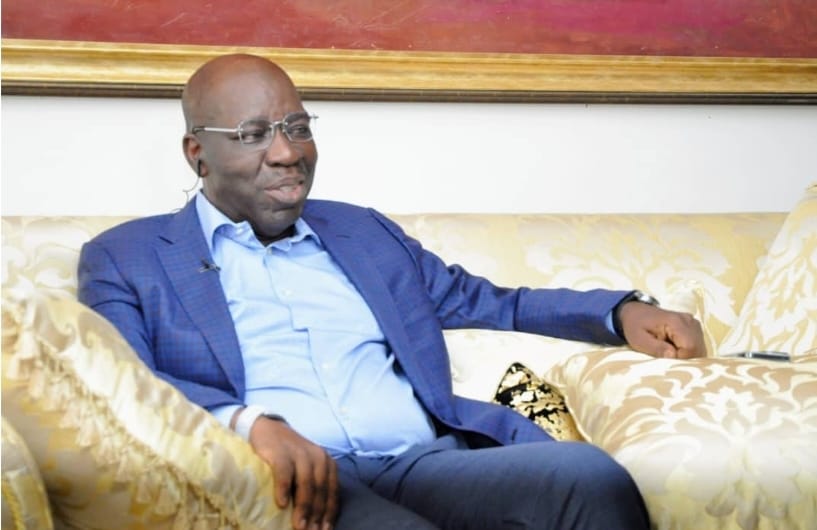As the sun sets on Governor Godwin Obaseki’s tenure in Edo State, it is essential to reflect on the remarkable progress made during his two terms of eight years in office. From infrastructure and healthcare to agriculture, civil service reforms and digital technology transformation, his administration has left an indelible mark on the state. His leadership has been defined by visionary policies, a strong commitment to transparency and a focus on the foundation for sustainable development.
As Edo prepares for a new chapter, it is crucial to recognise not just the achievements but the importance of maintaining the momentum that has been built. The progress made over the past eight years must be sustained to ensure that the state continues on its path of growth and prosperity.
When Obaseki took office in 2016, Edo’s infrastructure was in urgent need of renewal. His administration launched an ambitious infrastructure drive that has transformed the state. Key achievements include the construction of the Benin River Port, enhancing Edo’s connectivity to global markets and positioning it as a logistics hub. The government also revamped major roads, reducing travel time and improving transportation. Urban renewal projects in Benin City, such as drainage system rehabilitation and road expansion, have alleviated flooding and boosted the city’s aesthetics. These efforts have improved investor confidence and strengthened the state’s economy.
In addition, the Obaseki administration made significant strides in improving healthcare delivery in Edo. At the heart of these efforts is the Edo Health Improvement Programme (Edo-HIP), an initiative designed to provide accessible and affordable healthcare to all residents through the establishment of health insurance schemes and the construction of modern healthcare facilities.
Obaseki’s notable achievement in the healthcare sector was the revitalisation of the Stella Obasanjo Hospital, which was transformed into a world-class healthcare centre capable of handling complex medical procedures. Additionally, Governor Obaseki’s focus on primary healthcare led to the establishment and upgrading of over 200 primary healthcare centres across the state. This decentralisation of healthcare ensured that even the remotest rural communities accessed quality medical services.
During the COVID-19 pandemic, Edo was among the first states to establish isolation centres and coordinate an efficient response, setting the pace for the rest of the country. The government’s quick and decisive actions helped control the spread of the virus and saved countless lives.
Agriculture, historically the backbone of the state’s economy, witnessed significant transformation under Obaseki. Recognising the untapped potential of the state’s fertile land and the need for food security, his administration launched various agricultural programmes to boost productivity, empower farmers and attract investment into the sector.
The Edo State Oil Palm Programme (ESOPP) is a beacon of success in the governor’s agricultural agenda. This initiative revitalised the state’s oil palm industry and attracted over $500 million in private sector investment, creating thousands of jobs for Edo youth and positioning the state as a major player in the global oil palm market.
Besides, through the Edo Agripreneurship Programme, thousands of smallholder farmers were trained in modern farming techniques, enabling them to increase yields and improve profitability. The production of rice, cassava and maize saw significant growth, contributing to food sufficiency.
Moreover, the governor prioritised civil service reform, recognising that an efficient bureaucracy is essential for delivering democratic benefits. His administration introduced the Edo State Public Service Reform Programme, streamlining processes, eliminating ghost workers and equipping civil servants with digital skills. These efforts made Edo one of Nigeria’s most digitally advanced states in governance. The Edo Basic Education Sector Transformation (EdoBEST) initiative also leveraged technology to improve education, ensuring that children across the state access quality learning opportunities.
Under Obaseki, Edo took a giant leap forward in embracing the digital age. His administration understood that technology could be a catalyst for development, particularly for empowering the youth and creating job opportunities. The establishment of the Edo Innovation Hub and the Edo Tech Park were landmark initiatives aimed at nurturing a new generation of tech-savvy entrepreneurs and developers.
Edo State was celebrated for its leadership in educational reforms and digital transformation at the 2024 Nigeria GovTech Public Service Awards, hosted by the Federal Bureau of Public Service Reforms (BPSR). Governor Godwin Obaseki was awarded Digital Governor of the Year (Public Sector Automation) for eight years of impactful reforms in digital governance.
The award citation noted, “Under his leadership, Edo has emerged as Nigeria’s most digitally connected state, with every local government linked through fiber optics and the entire public service running on an efficient e-government platform. This transformation has positioned Edo State at the forefront of public sector digitization in Nigeria.”
Through partnerships with local and international organisations, the state trained thousands of youths in software development, data science and other Information and Communication Technology-related fields. These initiatives did more than provide jobs – they positioned Edo as a digital hub in Nigeria, capable of attracting tech startups and investors.
As Obaseki prepares to leave office as Edo governor, the state stands at a critical juncture. The progress achieved in infrastructure, healthcare, agriculture, civil service reforms and digital technology over the past eight years has created a strong foundation for growth. The incoming administration must sustain and expand these gains by prioritising transparency, accountability and long-term planning. Collaboration with the private sector and aligning policies towards creating a prosperous Edo with access to quality healthcare, education and job opportunities for all citizens will be crucial.
Governor Godwin Obaseki’s legacy is one of transformation, but it is also a call to action for future leaders. Edo’s future is bright but requires commitment, collaboration and innovation to sustain the progress made as the state continues to thrive in the years to come.

